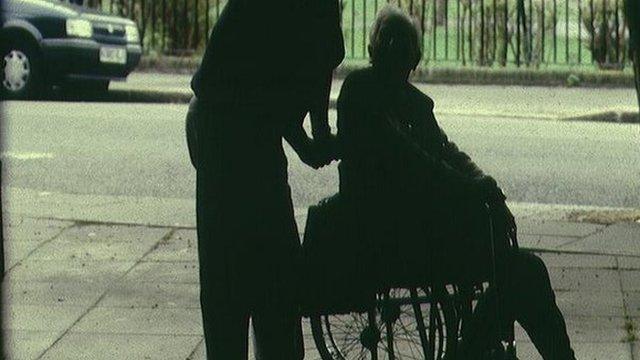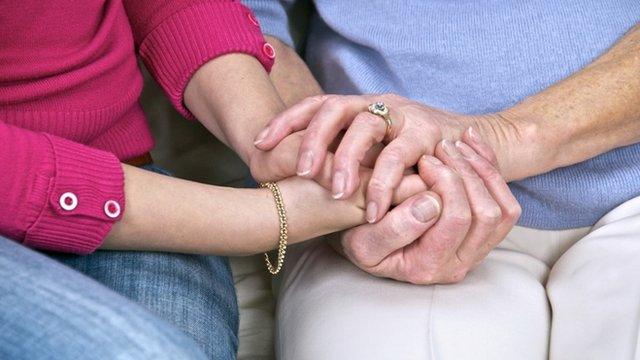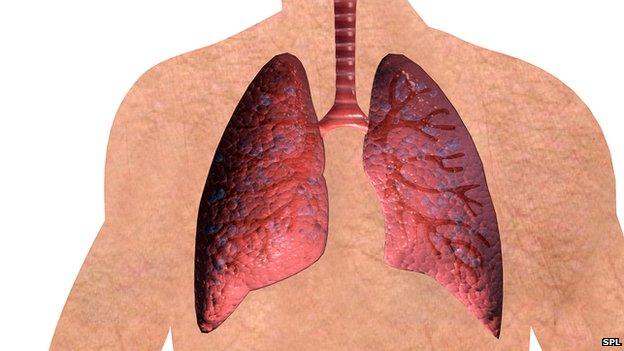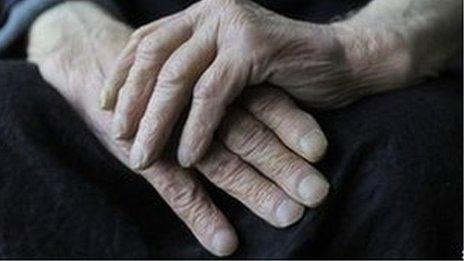Dying patients' care survey plea by Marie Curie Cancer
- Published
Marie Curie says the current system of measuring their experiences is too limited
Patients who are dying need better opportunities to have their say about the standard of care they receive, says charity Marie Curie Cancer Care.
It wants the Welsh government to undertake an annual survey of bereaved families to see how they feel care services can be improved.
Since 2009 patients have been able to rate specialist care in a questionnaire but the charity wants it to go further.
The Welsh government said it would consider the proposal.
But one of the country's leading palliative care doctors has defended the current Welsh system, claiming it provides "very rich" and "very important" data.
Currently, patients who receive palliative care or their families have an opportunity to provide feedback on their experiences.
Marie Curie Cancer Care has called on the Welsh government to emulate the national bereavement survey, external in England commissioned by the Department of Health.
It argued that the "I Want Great Care" survey was not representative of all dying people as it was only applicable to those receiving specialist palliative care such as in a hospice or at home.
And said there was little opportunity for other patients who had not previously been referred for specialist care or previously diagnosed as terminally ill to give their views of the care they received at the end of their lives.
But Baroness Ilora Finlay of Llandaff, a key adviser to the Welsh government on end of life medicine, disputed the claim the survey was too narrow in its scope, although she explained it was in the process of being improved.
'Upset or distressed'
Baroness Finlay said: "We've had many thousands of returns... which is full of very important and very rich data.
"We have seen quite clearly what matters to people.
"Not having delays, not being shunted around from pillar to post, being believed when they're upset or distressed.
"It relates very much to attitude and approach and being seen as a person."
'I promised him he could die at home'
Last year, the Welsh government published its end of life delivery plan, external with the aim of improving palliative care and requiring Wales' local health boards - which commission and manage care - to produce plans for improving services.
A spokesperson said: "We recognise the importance of the patient voice in improving services, particularly at the end of life when understanding the needs of the individual are essential to providing effective services."
Next month the Welsh government will launch a new programme aimed at encouraging people to be more open and honest about death and discussing their wishes at the end of their lives.
- Published30 April 2014

- Published29 April 2014

- Published18 April 2013

- Published4 April 2014

- Published8 January 2013

- Published29 April 2014